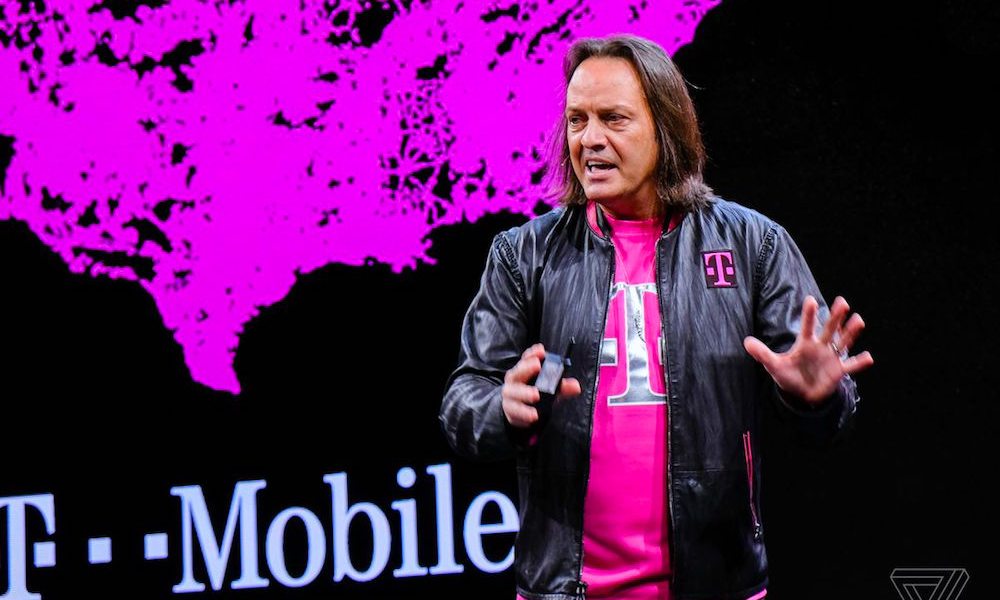T-Mobile Pledges to Roll out Coast-to-Coast 5G by 2020

Image via The Verge
Toggle Dark Mode
T-Mobile is planning on rolling out a nationwide 5G network by 2020, the company announced on Tuesday. The Un-carrier’s announcement marks it as the first U.S.-based wireless company to unveil plans for a national 5G network. To do so, the company will use a portion of its $8 billion purchase of low-band 600 MHz spectrum to deliver 5G coverage coast-to-coast, according to T-Mobile’s press release. “5G will be amazing, and we can’t even imagine all the cool stuff it will bring, just like with our earlier network innovations,” CEO John Legere said. “That’s why truly mobile 5G has to be nationwide — period, the end.”
T-Mobile contrasts their approach to Verizon’s and AT&T’s 5G networks — which the Un-carrier likens to small “hotspots,” as opposed to actual nationwide coverage. Since a coast-to-coast 5G network would require a mixture of high-band and low-band coverage, T-Mobile claims that it’s in an excellent position to deliver — owing to its currently unused 600 MHz spectrum.
Benefits of 5G
When 5G coverage finally does roll out, it’ll be insanely fast. Massive files like HD movies could be downloaded from iTunes in seconds and will undoubtedly open up a whole other realm of possibilities. Other than allowing higher-quality multimedia to be more convenient for mobile devices, 5G networks could also lead to better self-driving vehicle systems, real-time virtual reality and near-instantaneous access to cloud-based data.
Of course, Apple fans will probably have to wait a few more years before they can expect to see a 5G-compatible modem in an iPhone. In fact, the mobile industry is still standardizing what 5G actually is. And 5G modems like the likes of industry giants like Intel and Qualcomm won’t show up in phones until at least 2018. So while T-Mobile may be the first carrier to officially announce such plans, their timeframe actually lines up with when the rest of the industry is expected to begin implementing 5G networks and systems.
T-Mobile’s rollout is expected to begin in 2019, with the ultimate goal of achieving full, nationwide coverage by 2020, the company said.






